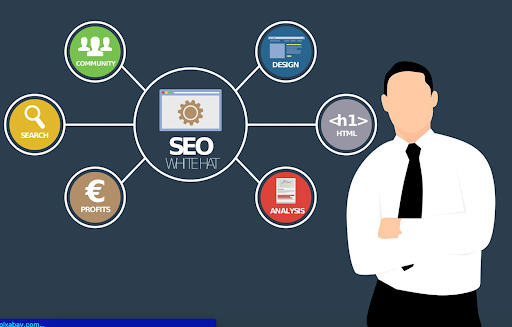Understanding the Local Market Landscape
Philadelphia SEO strategies begin with understanding the city’s unique business environment. Philadelphia is a vibrant metropolitan area with a mix of established institutions, bustling small businesses, and a diverse customer base. Before launching campaigns, marketers must research local competitors, identify top-ranking sites, and analyze their backlink profiles and content strategies.
To execute this step effectively, start by using tools like SEMrush or Ahrefs to perform competitor analysis. Look for shared keywords, domain authority, and top-performing pages. Combine this with manual Google searches to see which businesses consistently appear in the local pack. Create a spreadsheet to track patterns—this will help you find gaps where your content can outperform competitors.
For example, if your analysis shows that local competitors are not optimizing for voice search, you can capture that traffic by creating FAQ-style content that matches conversational queries. This research-driven approach ensures your strategy is grounded in the city’s real search dynamics.
Mastering Local Keyword Research
Local keyword research is essential for visibility in a competitive city like Philadelphia. This means finding search phrases that reflect both high volume and strong local intent. Beyond obvious terms like “digital marketing agency Philadelphia,” focus on long-tail phrases such as “best SEO consultant near Old City” or “top restaurants in Fishtown with outdoor seating.”
Start with tools like Google Keyword Planner and also explore Google Trends to see seasonal shifts in search volume. Then map these keywords to specific landing pages or blog content. The key is not just to target keywords but to structure your site so that each page is optimized for a unique intent.
For instance, a law firm could create separate pages targeting neighborhoods like Rittenhouse, Manayunk, and South Philly to dominate hyperlocal search results. This hyper-targeting improves relevance and conversion rates.
Leveraging Google Business Profile (GBP)
Optimizing Google Business Profile is non-negotiable for local SEO success. A fully optimized GBP can dramatically improve your chances of appearing in the local 3-pack, which drives high-intent clicks.
Start by filling out every section of your GBP profile: business name, category, hours, services, and description. Upload high-quality images of your location, staff, and products. Encourage satisfied customers to leave detailed reviews and respond to each review promptly to show engagement.
As an example, a restaurant in University City could use GBP posts to highlight weekly specials or events, which keeps the profile fresh and encourages repeat visits. This small step often gives businesses an edge over competitors who rarely update their listings.
Creating Location-Specific Content
Generic content rarely performs well in competitive cities. Instead, focus on creating content that resonates with Philadelphia audiences. Blog posts, guides, and landing pages should mention local landmarks, neighborhoods, and events.
To implement this, develop a content calendar that includes topics tied to the city—such as “Best Co-Working Spaces in Center City” or “SEO Tips for Philly-Based Startups.” This not only helps with rankings but also builds a stronger connection with local readers.
An example is a real estate agency publishing a monthly “Philadelphia Neighborhood Spotlight” series. Each post could include local housing data, commute tips, and nearby amenities, positioning the agency as a trusted local authority.
Building High-Quality Local Backlinks
Backlinks are still one of the strongest ranking factors, but for local success, focus on geographically relevant sources. Local backlinks from chambers of commerce, news outlets, and community blogs send strong trust signals to search engines.
Begin by compiling a list of local directories, sponsorship opportunities, and event pages where your business can earn a mention. Pitch guest posts to Philadelphia-based publications or collaborate with influencers in the city to create co-branded content.
For example, a fitness studio could sponsor a local 5K race and receive a backlink from the event website. This builds authority while also connecting with a highly relevant audience.
Prioritizing Technical SEO for Local Speed
A slow or poorly optimized website can cost you local rankings. Philadelphia users expect fast-loading, mobile-friendly websites—especially when searching on the go.
Run regular site audits with tools like Screaming Frog or PageSpeed Insights to catch issues like broken links, slow images, and missing schema markup. Fixing these problems improves crawlability and user experience.
For example, adding LocalBusiness schema can help search engines better understand your NAP (Name, Address, Phone) information and display it correctly in search results. This is a small but powerful step for standing out in local search.
Tracking and Iterating for Growth
A successful local SEO service campaign is never “set and forget.” Consistent monitoring ensures you adapt to algorithm updates and competitive shifts.
Use Google Analytics and Google Search Console to track your rankings, click-through rates, and conversions. Review GBP insights monthly to see which photos, posts, and actions generate the most engagement.
This ongoing process ensures you stay competitive in a city where search behavior is always evolving. By staying proactive, you can keep your Philadelphia SEO strategy ahead of the curve and consistently attract high-quality local traffic.

